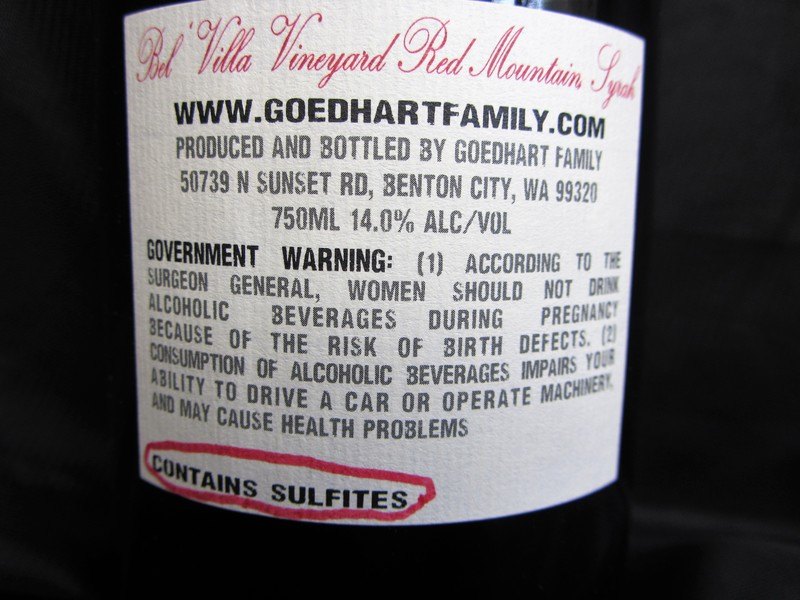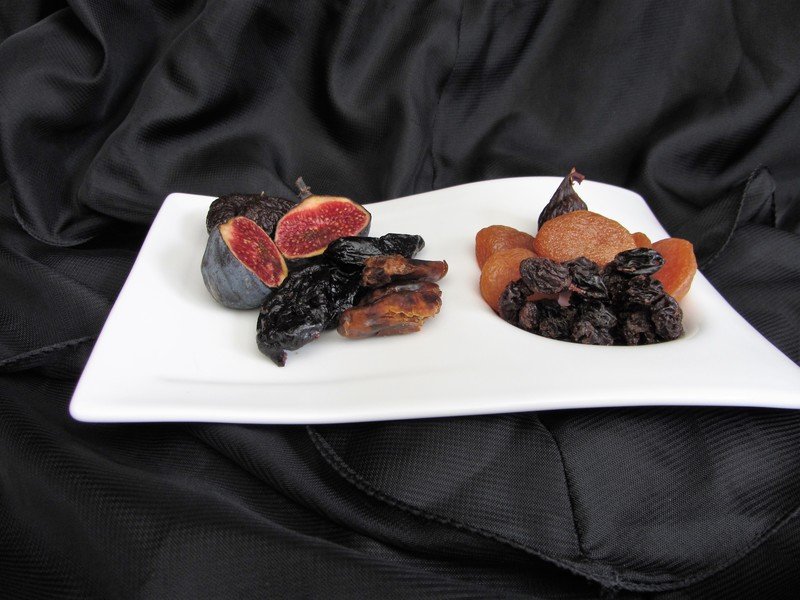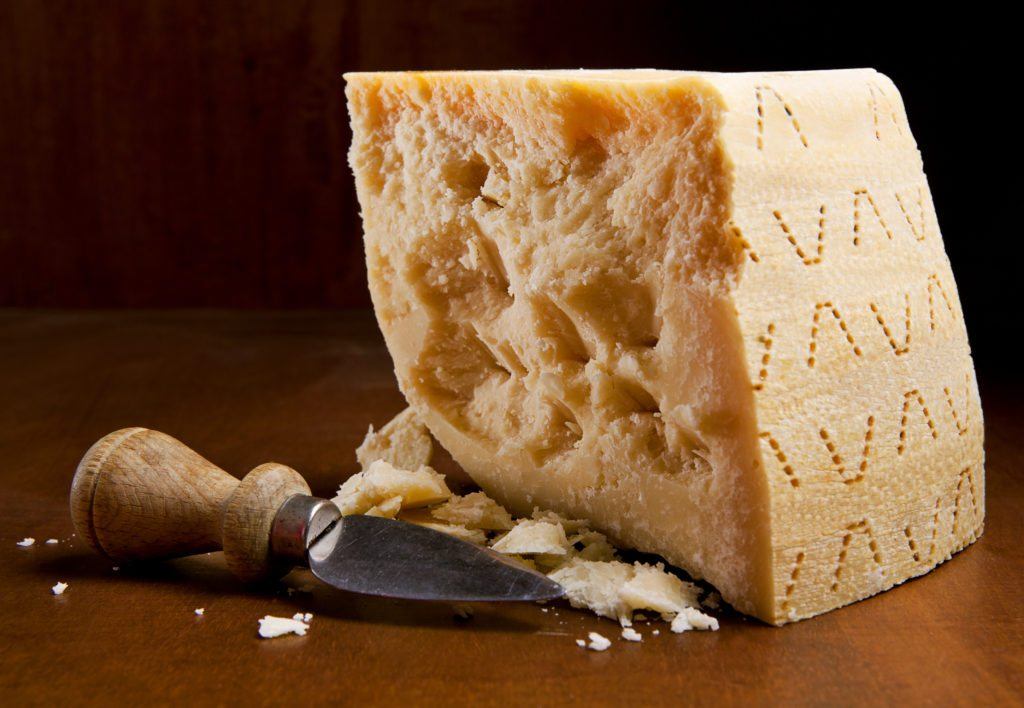We all know someone who can drink beer but not wine, or people who can drink white wine but not red. But why is this? Is it actually possible to be allergic to wine? And, if so, what are the causes of wine intolerance?
Suspect #1: Sulfite intolerance
Plenty of articles cover sulfites in wine and tell us they are bad for our health, causing hangovers, headaches and worse. At Vincarta, we think this is misleading. We touched upon this in a previous article and established – unsurprisingly – that alcohol is the root cause of most hangovers.
Yes, a small number of people suffer from sulfite intolerance, but these are not the symptoms most people complain about when they say they are intolerant to wine. Instead, those who suffer from sulfite intolerance experience symptoms similar to asthma and allergic rhinitis (sneezing, itchiness, blocked or runny nose). The most common reactions are wheezing, tight chest and coughing.
We’ve been using sulfites as food preservatives for thousands of years. Without sulfites, some of our favourite foods would poison us. Foods containing sulfites include E numbers (shown as E220 to E228 in their list of ingredients). On wine bottles, the label ‘Contains sulfites’ is also mandatory.
So, what have sulfites ever done for us? Well, for starters, they are:
- Antiseptic (anti-microbial), killing harmful bacteria
- Antioxidant, reacting with the first compounds of oxidation to reverse their action
- Anti-oxidasic, poisoning the enzymes which cause oxidation and slowing their oxidative effect. For example, these enzymes can cause a freshly cut apple to brown after 10-15 minutes of being cut.
- An antidote to oxidised wine, restoring some of its freshness.
 Wine label with the caption ‘contains sulfites’. Sulfites are incorrectly blamed for being the main cause of intolerance when drinking wine.
Wine label with the caption ‘contains sulfites’. Sulfites are incorrectly blamed for being the main cause of intolerance when drinking wine.Because sulfites are recognised as allergens, the European Union regulations stipulate that all manufacturers of food products should mention them on the label if their concentration exceeds 10 mg/kg or 10 mg/litre in terms of the total SO2. Moreover, EU limits restrict the quantity of sulfites in a bottle of wine to:
- 150mg/litre for a dry red wine
- 200mg/litre for dry white wine and rose
- 300-400mg/litre for sweet wines
But, wine is not the only product which contains sulfites. EU regulations indicate there are food products which contain concentrations of sulfites three to ten times greater than a dry wine:
- Burger meat and breakfast sausages – 450mg/kg
- Dijon Mustard – 500mg/kg
- Dried apples and pears – 600mg/kg
- Dried apricots, peaches, grapes, prunes, and figs – 2,000mg/kg

Therefore, if someone claims to suffer from sulfite intolerance when drinking wine, he/she should not be able to eat the foods mentioned above without suffering a similar reaction.

Suspect #2: Histamine intolerance
Histamines are another allergen present in wine which may cause intolerance. They are a biogenic amine which is essential in living organisms. Histamines play an important part in the immune system, proper digestion, and central nervous system and communicating important messages from the body to the brain. They are also a component of stomach acid, which breaks down food in the stomach. Good old histamines.
However, some people are intolerant to histamines, experiencing:
- Headaches/migraines
- Facial flushing
- Vertigo or dizziness
- Accelerated heart rate
- Nausea, vomiting
- Nasal congestion, sneezing, difficulty breathing
Recent developments in chemical analysis demonstrate that wine contains low levels of histamines (less than 10mg/l in white wine and less than 30mg/l in red wine), which is below the level that causes reactions in the majority of allergy sufferers. Foods such as mature cheese, fish and meat contain at least ten times the level of histamines found in wine.

Other sufferers may have low levels of diamine oxidase, the enzyme which breaks down histamine, found in our small intestine. As a result, they will experience an intolerance when drinking wine containing smaller amounts of histamines.

Suspect #3: Intolerance to some types of alcohol
We explained in our article Why wine gives you a hangover (and how to avoid it) that alcoholic fermentation creates different forms of alcohol: methanol (highly toxic), ethanol and tail types of alcohols like propranol, butanol (fuel oils), which are not as toxic.
All these alcohols are important in the process of wine maturation because they interact with acids and form the aromas in wine. The process of fermentation creates many of these flavours, which are not present in grape juice. Grape juice can only ever taste of grapes, whereas people write encyclopaedias about the taste of wine.

Tail types of alcohol can cause headaches and nausea. If you are sensitive to them and experience these symptoms after even a small glass of wine, stick to clear, high-quality spirits such as gin and vodka. Both these drinks can contain traces of gluten though so you should avoid them if you are gluten intolerant.
You also need to remember that alcohol increases your existing sensitivities by decreasing your immunity to them. This is why Matthew’s hay fever is worse after he has had a few drinks.
Suspect #4: anthocyanins and tannin
Anthocyanins are large pigment molecules responsible for the red wine colour, tannin and body. They are common in the plant world and are responsible for the red and blue colours of leaves, fruits, and flowers. High levels of these pigments can be found in beetroot, rhubarb, red cabbage, berries and cherries. Anthocyanins are also present in lots of food colouring.
Tannins in wine come from the skin of red grapes, the seeds and the oak barrels the wine ages in. You can detect tannins as the bitter, astringent sensation in your mouth. You get a similar sensation from drinking black coffee, black tea or eating dark chocolate. People who are intolerant to tannin can experience headaches/migraines, stomach ache or bowel irritation. So, if you are intolerant to tannin when drinking wine, you may get the same effect drinking coffee or black tea.
With time and ageing, tannin molecules precipitate and form a sediment. That’s why an older wine tastes smoother and less astringent than a young one.
However, I think it is only fair to mention the difference between tannin sensitivity and a personal dislike for the astringent effect of tannins, especially young grippy tannins. From our experience, you can learn to enjoy different types of tannin as part of the overall experience of drinking wine.
Anthocyanins bring benefits: they are anti-oxidant and anti-inflammatory. The human body tolerates them and can help reduce allergic reactions. They protect against cardiovascular diseases, have an anticarcinogenic role and can enhance memory, preventing age-related declines in mental functioning. And red wine has plenty of them.
In wine, the anthocyanins serve a dual purpose:
- Acting as an anti-oxidant and preservative. That’s why red wine needs less SO2 treatment than white wine.
- Contributing to the development of ageing aromas, which are much-loved by wine buffs.
Benefits of drinking wine
It’s not all gloom and doom, even if the emphasis of this article is wine intolerance. Here are some benefits of drinking wine I came across during my research:
- Is red wine better than white? Apparently, it doesn’t matter, as long as it’s consumed in moderation on a regular basis. To maximise the health benefits, it is best to have a glass every day rather than binge-drinking two bottles over the weekend.
- Wine consumed in moderation reduces the risk of cardiovascular diseases, cancer and stress-related disease. How is this possible?
- Alcohol in moderation reduces bad cholesterol and raises the good cholesterol. So, if you are thinking of eating that fat piece of Stilton, better have it with a glass of wine!
- Wine contains very strong antioxidants, which are arguably more effective than vitamin C and E. Researches show that red wines contain more antioxidants than white wines (those ‘infamous’ anthocyanins and tannins!), but the ones in the white wine are more effective in cholesterol reduction. You can’t go wrong here, as all the antioxidants will chase away free radicals, no matter which colour you chose.
- Wine contains resveratrol, a substance produced by plants during times of stress (bad weather, pest attack). It protects them from fungal diseases. In humans, besides being an antioxidant, it can help prevent cancer and acts as an antibiotic against harmful bacteria (However, the jury is still out, according to other sources.)
- Wine has high levels of potassium, which play a crucial role in counteracting the negative effects of salt in our diet. It replaces the sodium in the body, meaning that, in many ways, wine is also a vitamin supplement.
Unless you are one of the few unfortunate people with an intolerance or allergy to wine, a little bit of what you fancy won’t do you any harm. In fact, it may actually do you some good. For most people, the old advice is the best: drink in moderation, enjoy responsibly and choose well-made wine (and food) instead of factory-conditioned, mass-produced slosh.





